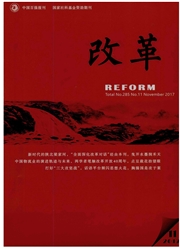

 中文摘要:
中文摘要:
以环境变化为切入点,从管理学视角界定当代工匠精神的内涵,并基于烙印理论探讨职业认知和创新能力的形成,建立形塑工匠精神的动态模型。在个人印记产生过程中,在员工职业生涯早期或职业角色转变时期,应重视内外部环境的共同影响,以师徒制为基础,发挥导师对徒弟的烙印效应,通过个人学习、职业认同和社会影响机制,产生工匠精神的印记。由于印记的交叉作用,印记的形成到发挥效力要经过持续、扩大、衰退、转变四个动态机制作用,始终保持与环境的互动、配适,进而实现个人与组织的创新与发展。
 英文摘要:
英文摘要:
In the context of rapid environmental change ,this paper analyzes the development of the contemporary craftsman spirit from the management perspective. Based on imprinting theory, the paper discusses the formation of professional cognition and innovation ability and builds a dynamic model of the craftsman spirit. In the process of personal imprint generation during early career transition, companies should pay particular attention to the common influences of the firm's internal and external environment. Within a mentoring-based system, mentors play an imprinting effect on their prot~g6s through individual learning, professional identity and social influence, resulting in the spirit of craftsman. Given imprinting cross functional attributes, the formation of imprinting is characterized by four dynamic mechanisms: persistence, amplification, decay and transformation. In the development of the craftsman spirit, finns need to maintain an appropriate interaction with their external and internal environment to achieve personal and organizational innovation and development.
 同期刊论文项目
同期刊论文项目
 同项目期刊论文
同项目期刊论文
 期刊信息
期刊信息
